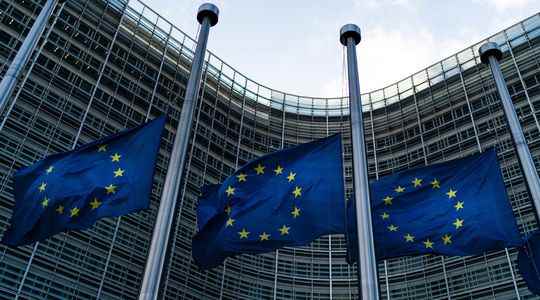Paris had denounced the attitude “inadmissible” of Rome, and Rome an “aggressive, incomprehensible and unjustified” French reaction. After three weeks of arm wrestling between the two countries, and wandering, the humanitarian boat Ocean Viking, with 230 migrants on board, finally docked in Toulon on November 11. In retaliation vis-à-vis Italy, which should have welcomed the NGO’s boat under international maritime law, the Minister of the Interior Gérald Darmanin announced last week “extremely strong consequences on the bilateral relationship” and possible “legal consequences”. For the time being, France has suspended its participation in the fragile relocation mechanism put in place this summer. It provided for a dozen member states of the European Union, including France and Germany, to voluntarily welcome 8,000 migrants arriving in countries of first entry into Europe, such as Italy.
In response to this recent crisis, which has revived heated debates on the reform of the EU migration system, Brussels presented an action plan on Monday 21 November with the ambition of accelerating the application of the solidarity mechanism. This 20-point project, relating to the central Mediterranean migratory route, is to be discussed on Friday by the Ministers of the Interior of the Twenty-Seven at an extraordinary meeting. It also emphasizes cooperation with the countries of origin and transit of migrants to increase the returns of those who do not obtain asylum in the EU.
Relocation of asylum seekers
Since the commitments made this summer, as part of a voluntary process of relocation of 8,000 asylum seekers per year who arrived in Mediterranean countries, only 117 have taken place so far. “We need to step up the pace,” said EU Home Affairs Commissioner Ylva Johansson. Asked about the announcement by French Minister Gérald Darmanin, on November 10, of a suspension of the planned reception of 3,500 refugees currently in Italy, the Commissioner recalled that the voluntary solidarity mechanism had been approved thanks to France on time of his rotating presidency of the EU. “I am of course counting on France and on Gérald Darmanin to continue to be as constructive as he has always been,” she commented.
She also called for the implementation of “alternative solidarity measures”. Some European countries had undertaken, in the absence of receiving asylum candidates, to provide assistance, particularly financial, to the countries of first arrival. Ylva Johansson also pointed out that the central Mediterranean route was the one with the most irregular arrivals (90,000 this year, an increase of more than 50% compared to last year) and one of the most dangerous. .
Negotiate the returns of those who do not have asylum
Last week, the Swedish commissioner went to Bangladesh to convince the authorities of this country to prevent “irregular arrivals in the EU” and to take back their nationals who have not obtained asylum, while referring to the need for “legal channels of migration”. Because, according to her, “migrants arriving via Libya come mainly from Egypt, Tunisia and Bangladesh”. She also welcomed “good cooperation with Niger which has made it possible to significantly reduce arrivals from the south of the Sahara”.
In the European Parliament, a resolution on the implementation of the “return directive”, which defines common rules for the return of illegally staying third-country nationals, had already been adopted on December 16, 2020. But the process is struggling to implement.
